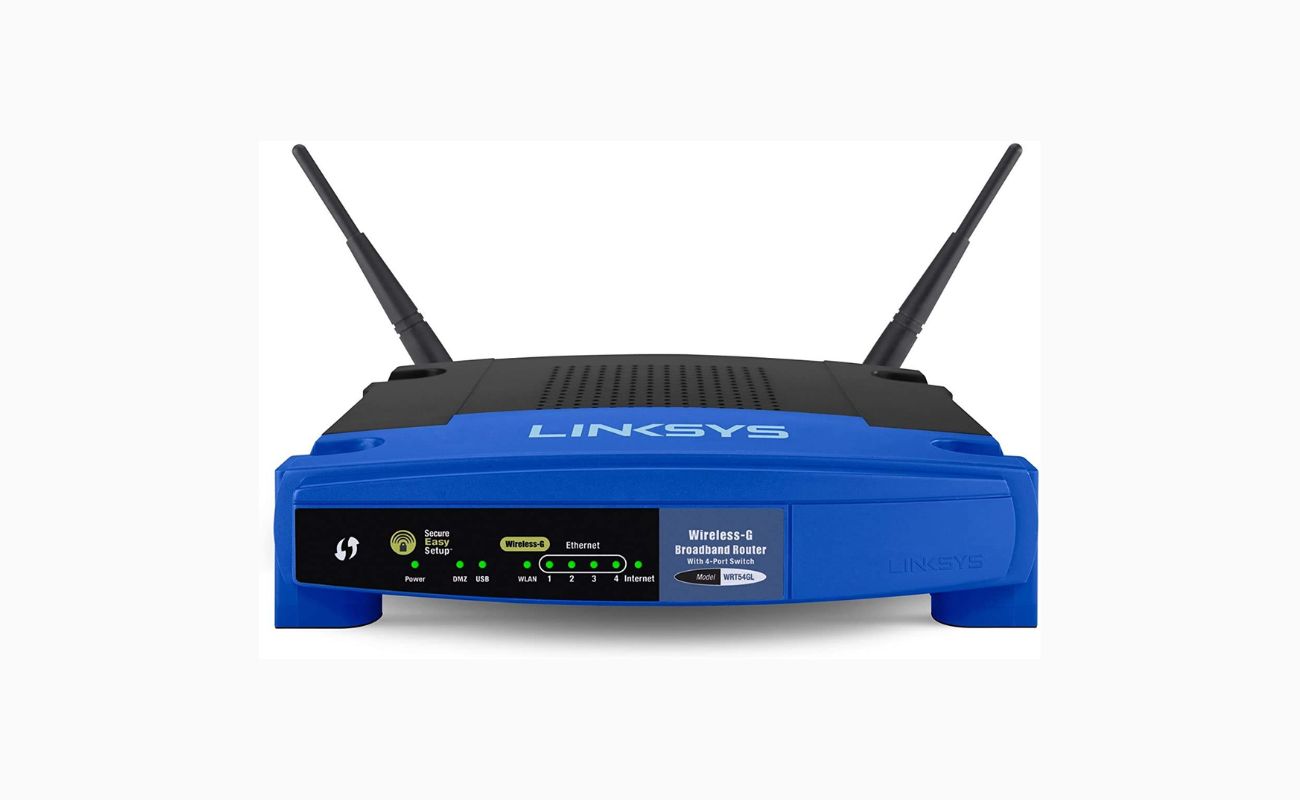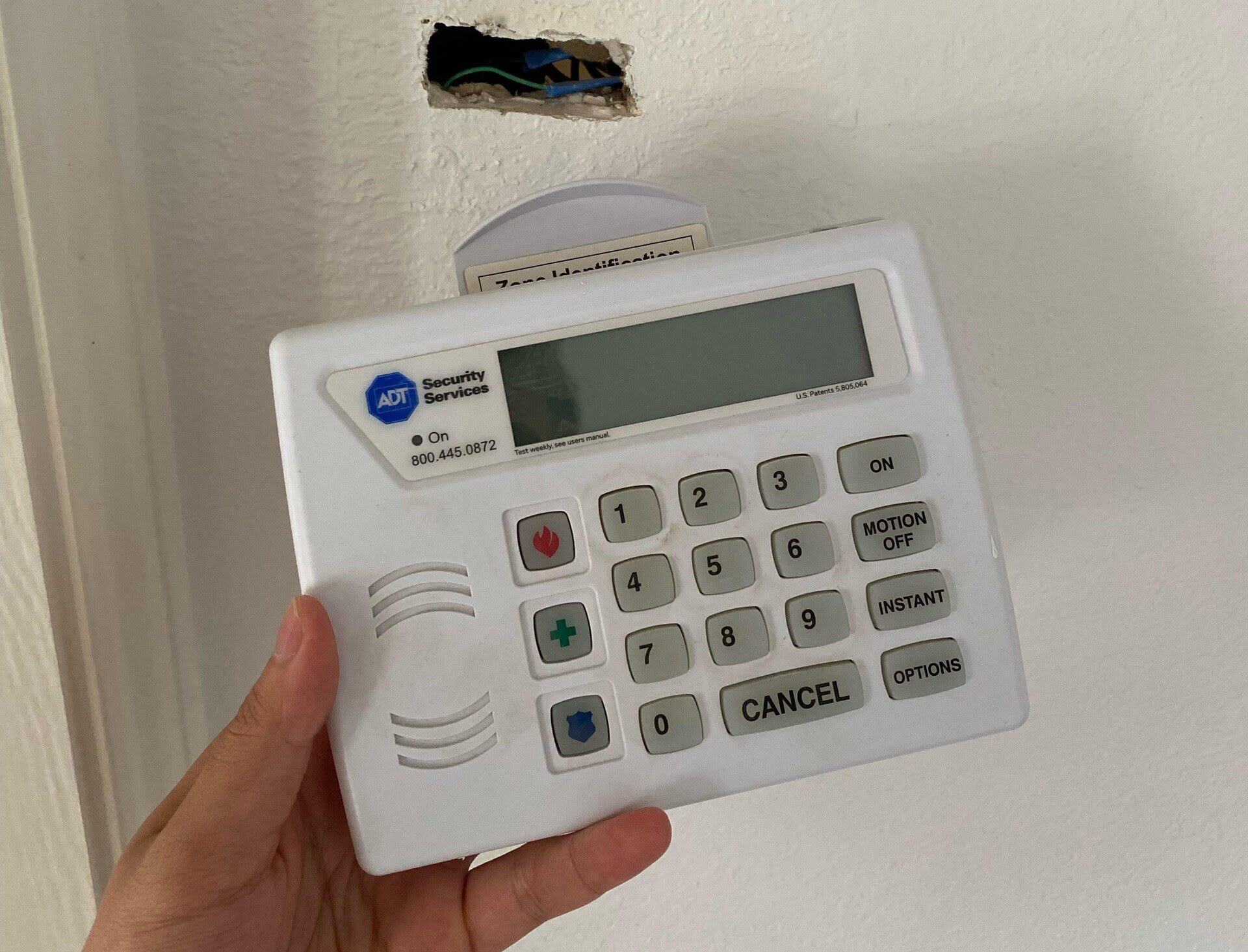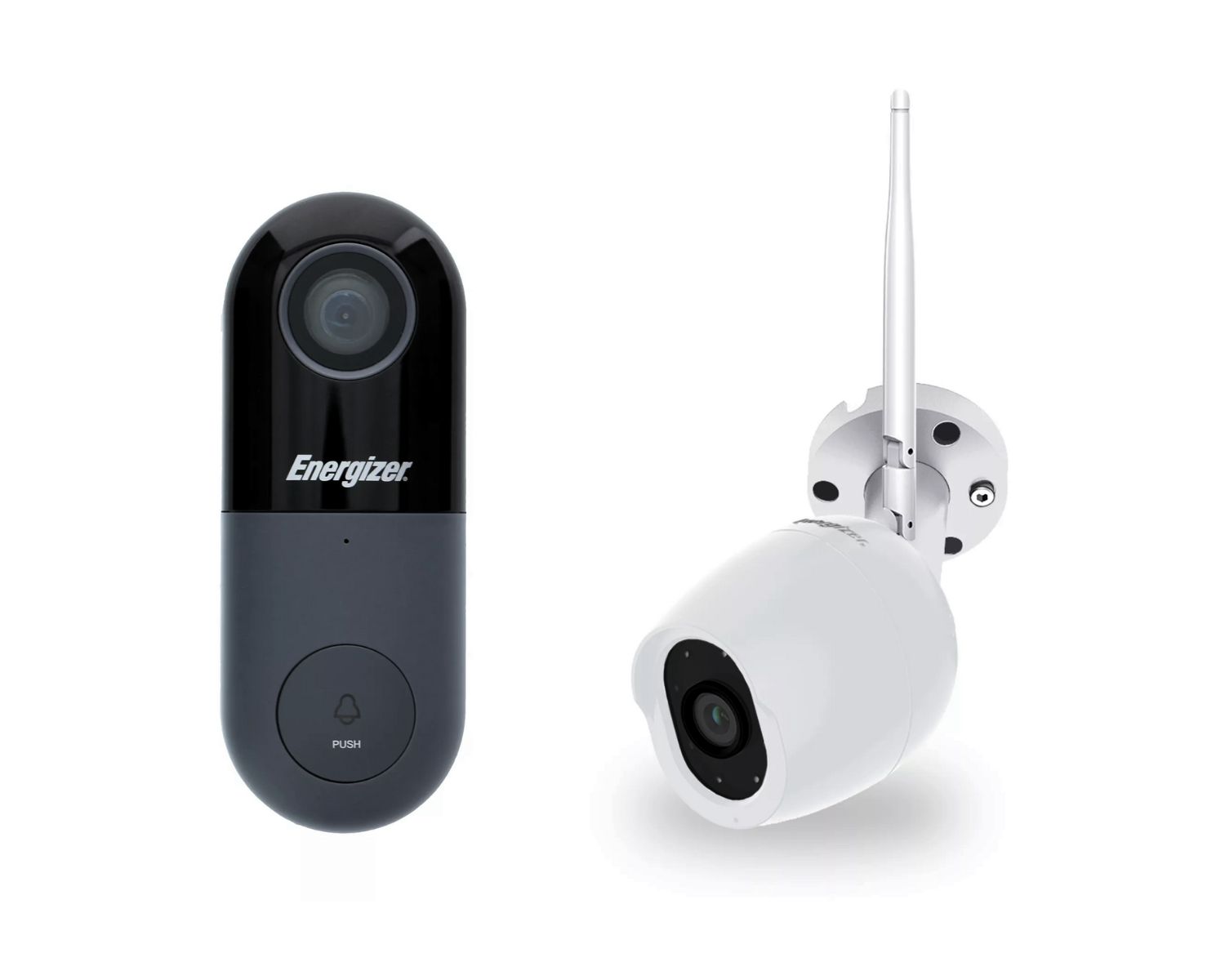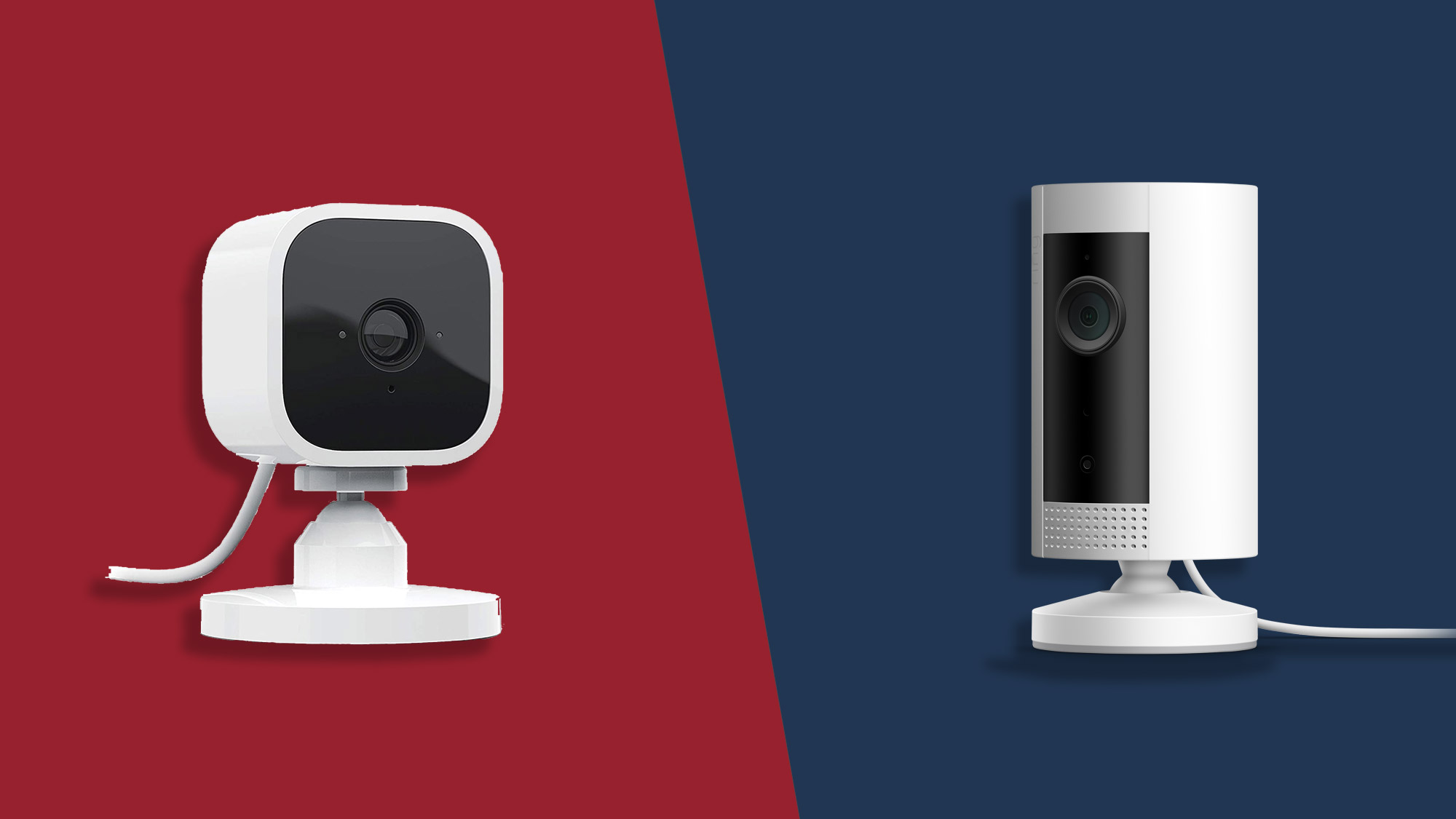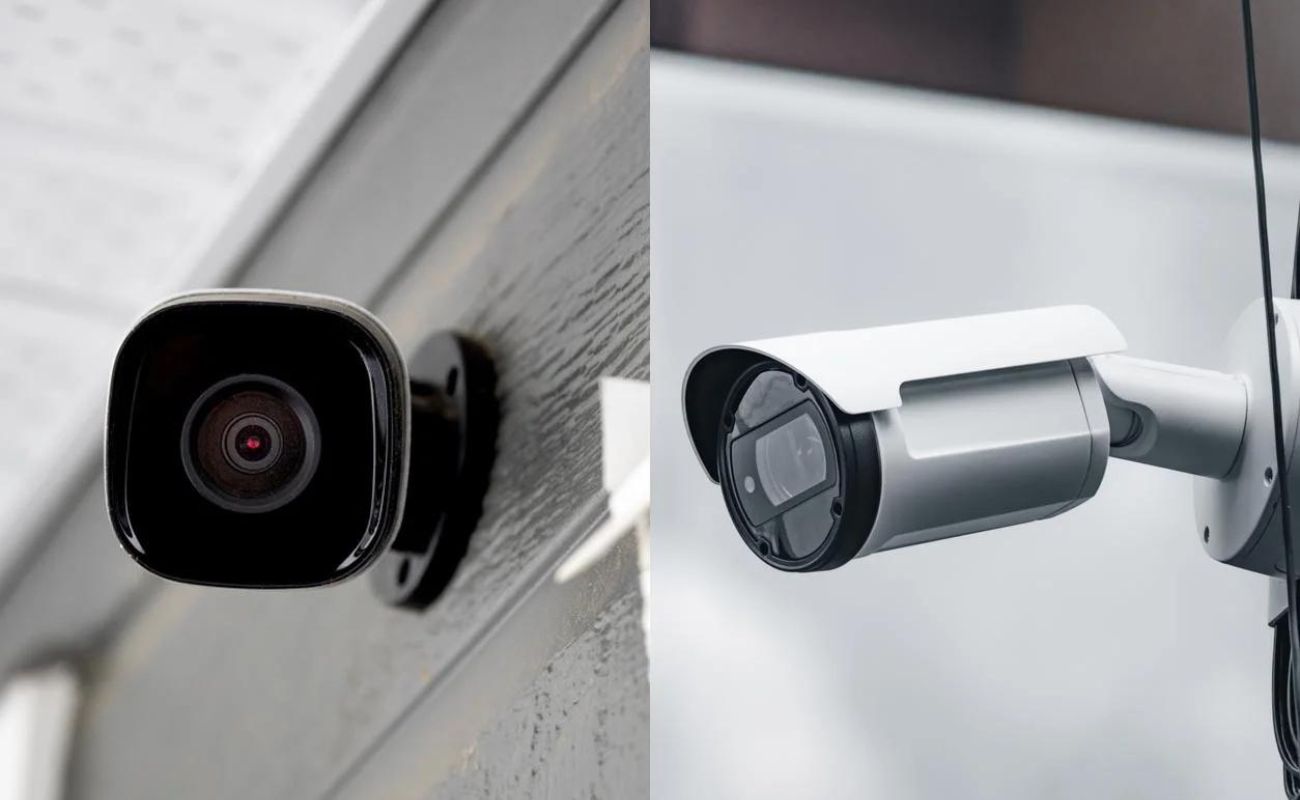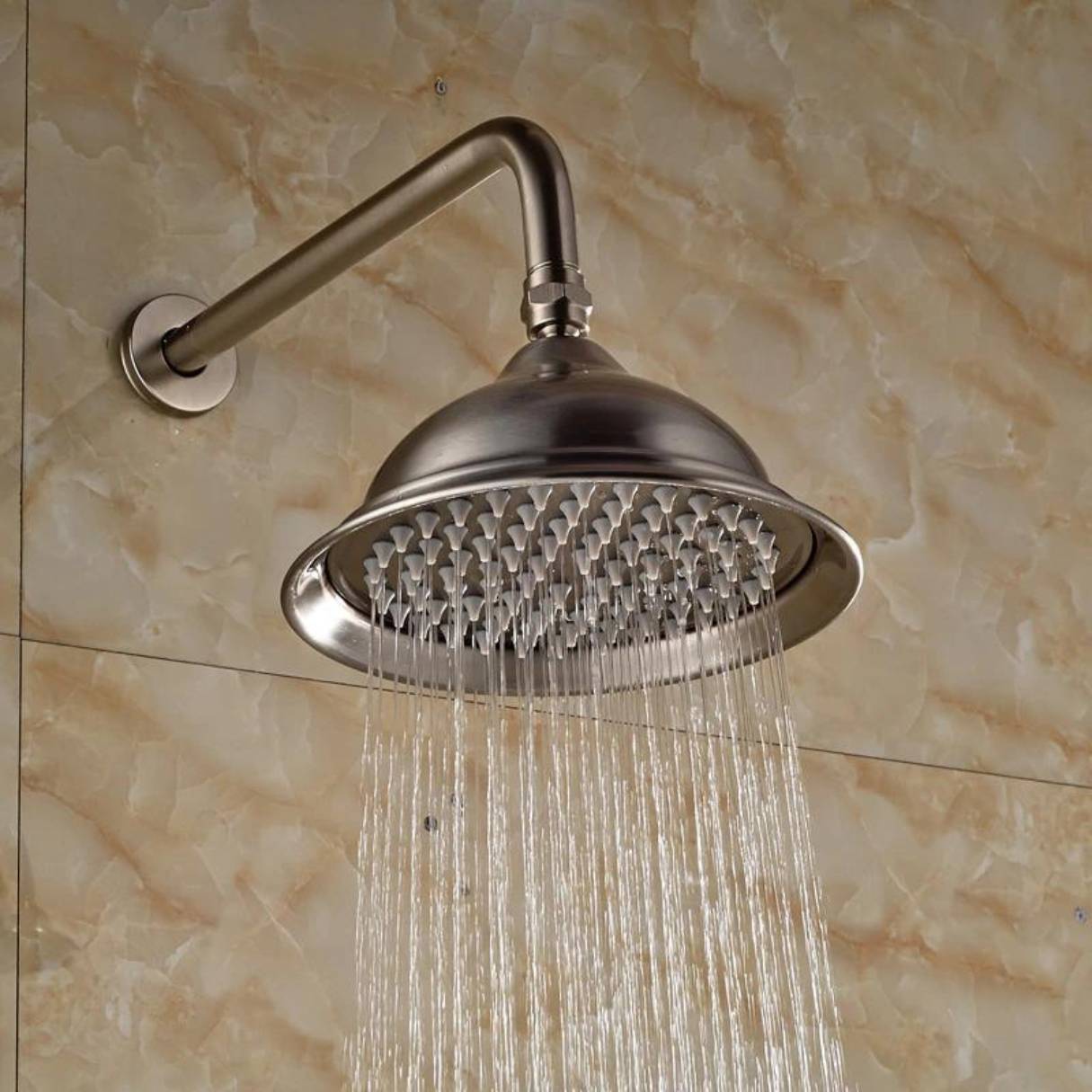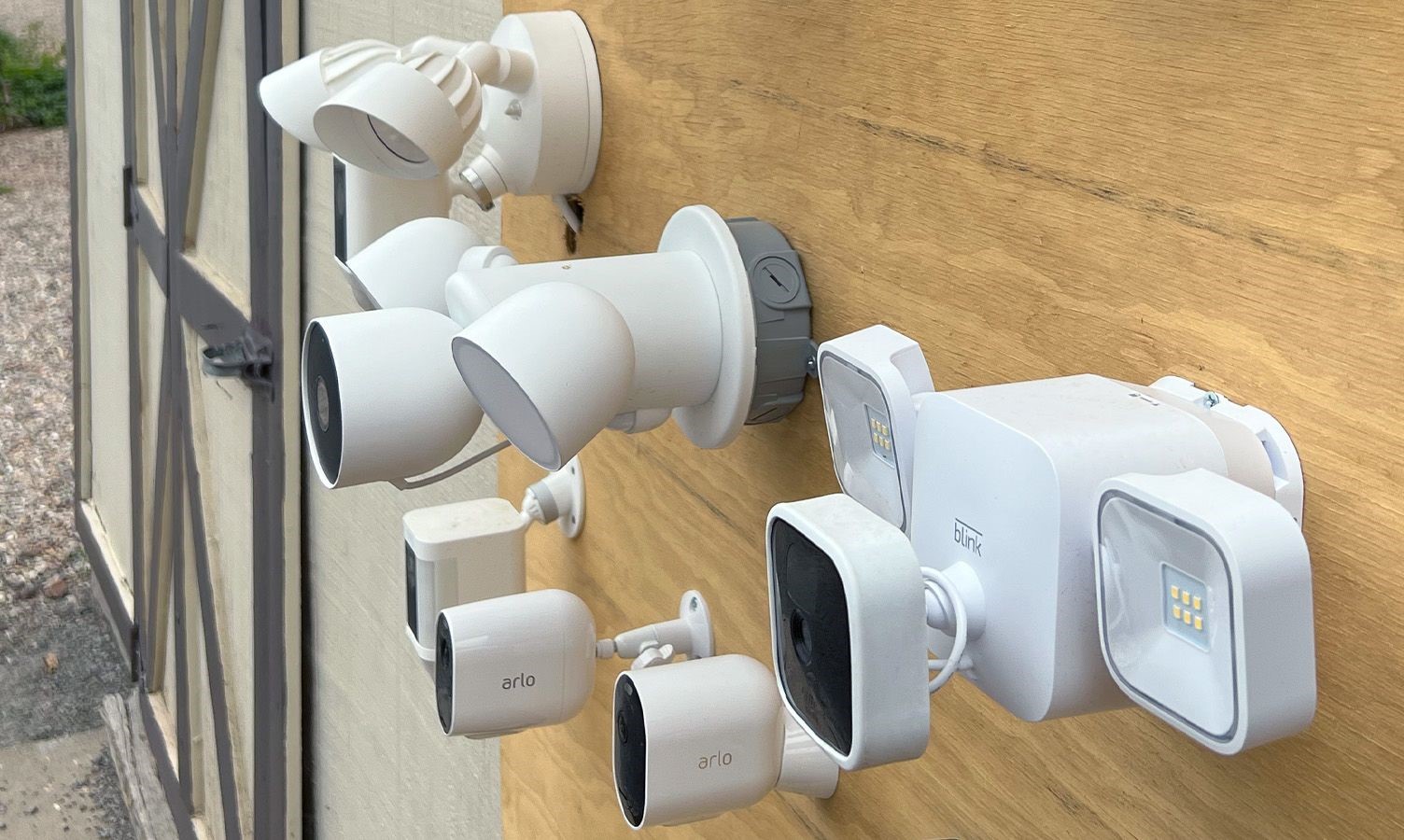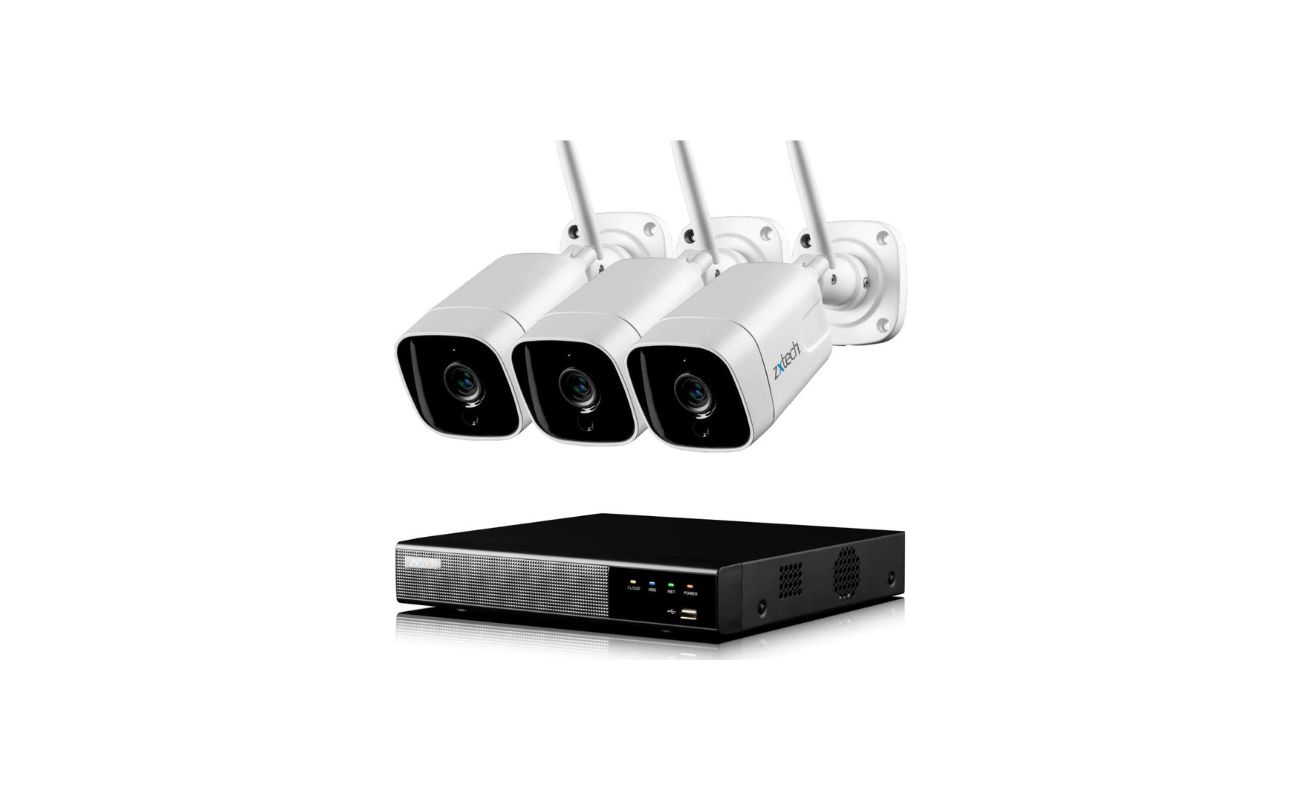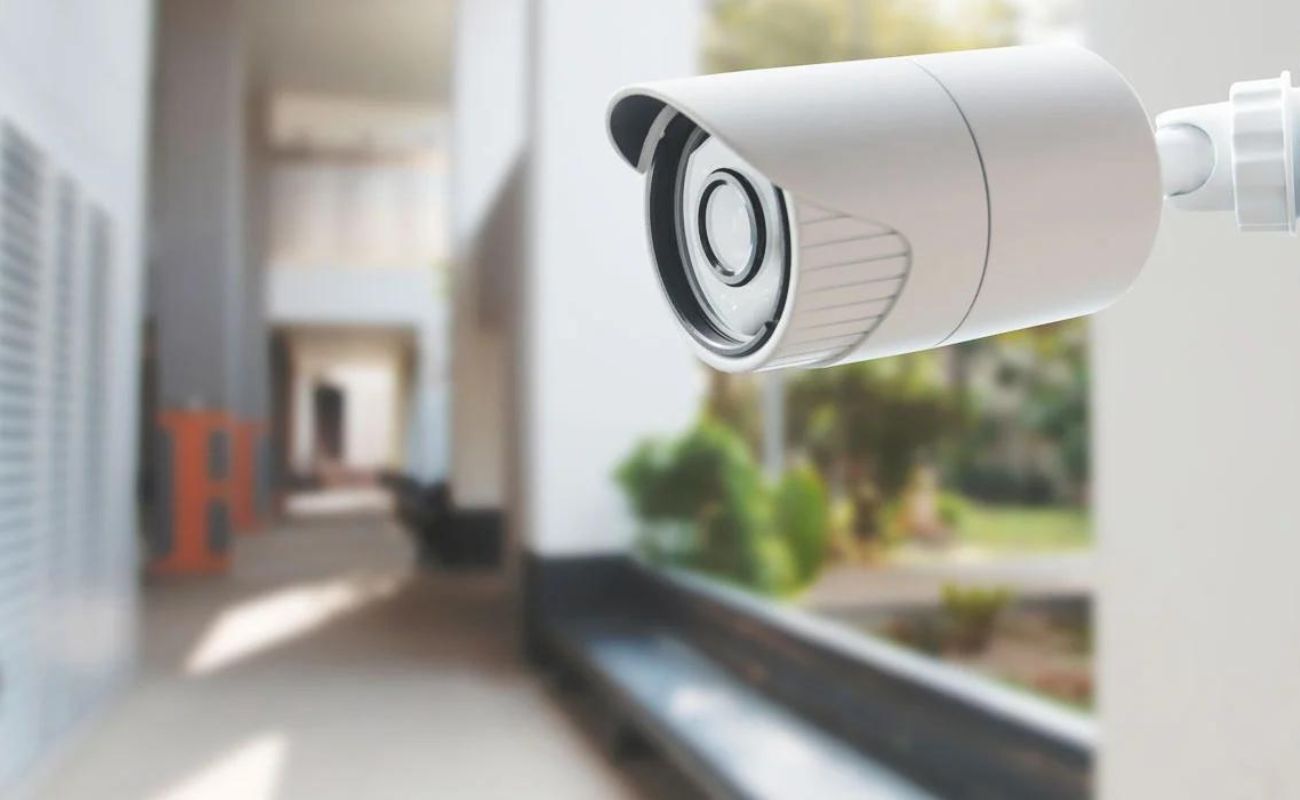Home>Home Security and Surveillance>Wired Or Wireless Security System: Which One Is Better?
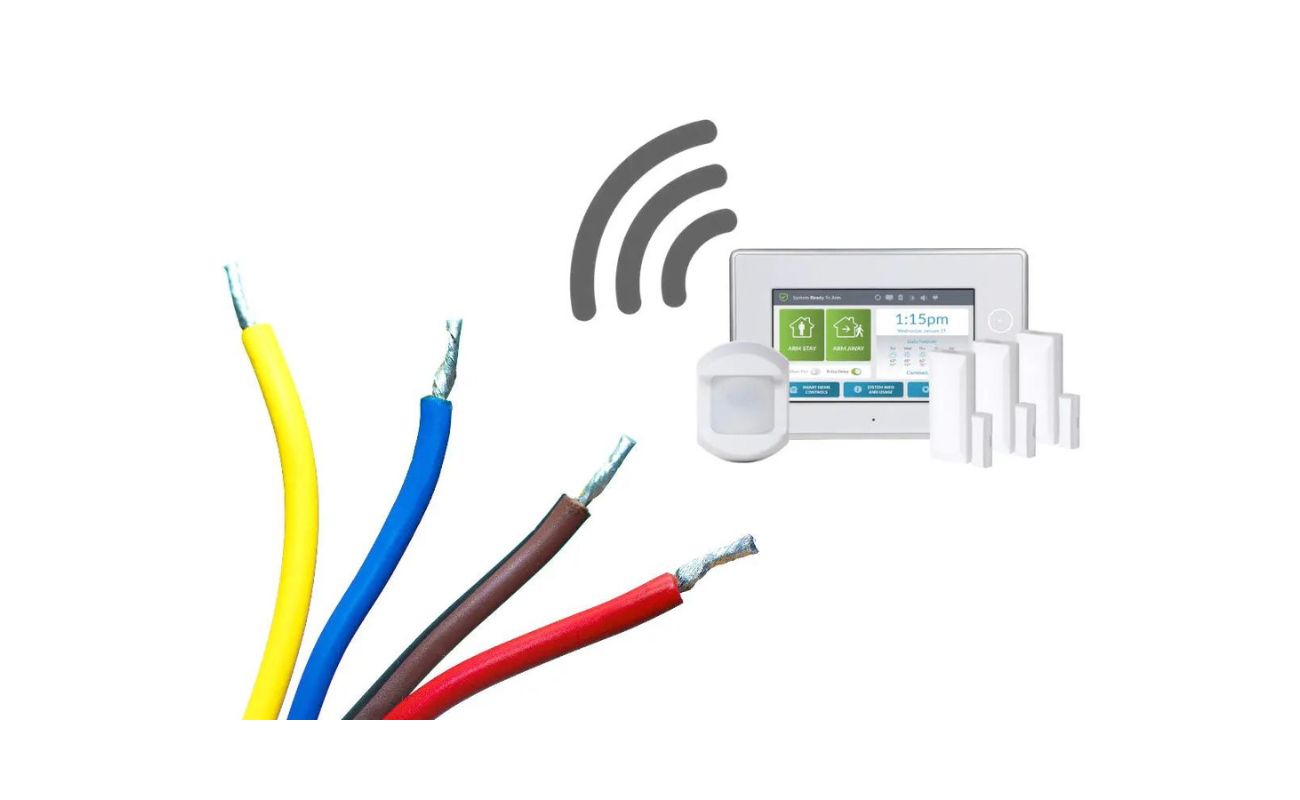

Home Security and Surveillance
Wired Or Wireless Security System: Which One Is Better?
Modified: March 6, 2024
Learn the pros and cons of wired and wireless security systems for your home. Discover which one is better for you and ensure the safety of your property.
(Many of the links in this article redirect to a specific reviewed product. Your purchase of these products through affiliate links helps to generate commission for Storables.com, at no extra cost. Learn more)
Introduction
Welcome to the world of home security and surveillance! In today’s fast-paced society, the need to protect our homes and loved ones has become more critical than ever. With advancements in technology, there are now various options available to enhance the security of our homes, and one key decision to make is whether to opt for a wired or wireless security system.
Both wired and wireless security systems have their own set of advantages and limitations. Understanding the differences between the two can help you make an informed decision based on your specific needs and circumstances. In this article, we will delve deeper into the intricacies of wired and wireless security systems to help you determine which option is better suited for you.
Before we dive into the specifics, it’s essential to understand the fundamentals of these two types of security systems. A wired security system involves running physical cables from the surveillance cameras to a central control panel, whereas a wireless security system uses wireless technology to transmit signals and data.
Now, let’s explore the benefits and drawbacks of wired security systems.
Key Takeaways:
- Wired security systems offer reliability, high-quality video, and enhanced security. They are best for those who prioritize stable connections and clear footage, but may require professional installation and have limited flexibility.
- Wireless security systems provide convenience, easy installation, and flexibility. They are suitable for those who value easy expansion and remote monitoring, but may be susceptible to signal disruptions and potential security risks.
Overview of Wired Security Systems
Wired security systems have been in use for many years and have a proven track record of reliability. These systems typically consist of CCTV cameras, sensors, and control panels that are interconnected through a network of cables. The cables allow for the transmission of power, video, and data between the various components of the system.
One of the key advantages of wired security systems is their stability and consistency. Since they rely on physical cables, there is less chance of interference or signal loss compared to wireless systems. This ensures that the surveillance cameras and sensors operate smoothly, providing a constant and uninterrupted flow of information.
Wired security systems are also known for their high-quality video and audio transmission. The use of cables allows for the transmission of uncompressed signals, resulting in clearer and more detailed footage. This is especially crucial when it comes to identifying faces, license plates, or other important details in the footage.
Furthermore, wired security systems are generally more secure from cyber threats. Unlike wireless systems, which can be vulnerable to hacking or unauthorized access, wired systems are not easily compromised. Since the data transmission occurs through physical cables, hackers would need physical access to the system to tamper with or intercept the signals.
However, it’s important to consider the limitations of wired security systems as well. The installation process can be more involved and time-consuming due to the need for cable routing and connections. This may require professional assistance, adding to the overall cost of the system.
In addition, the fixed nature of wired systems can limit flexibility and scalability. Once the cables are in place, it can be challenging to reposition or add new surveillance cameras or sensors without significant adjustments to the existing infrastructure.
Now that we have covered the basics of wired security systems, let’s move on to the advantages and limitations of wireless security systems.
Advantages of Wired Security Systems
Wired security systems come with several advantages that make them a popular choice for homeowners seeking enhanced security and surveillance. Here are some key advantages of opting for a wired security system:
- Reliability: Wired security systems are known for their reliability. With physical cables connecting the cameras, sensors, and control panels, there is a stable and consistent flow of power, video, and data. This ensures that the system operates smoothly and minimizes the risk of signal loss or interference.
- High-Quality Video: Wired systems offer high-quality video transmission. The use of cables allows for the transmission of uncompressed signals, resulting in clearer and more detailed footage. This is particularly crucial for identifying faces, license plates, or other important details, greatly aiding in investigations or evidence collection.
- Security: Wired security systems are generally more secure from cyber threats. Since the data transmission occurs through physical cables, the risk of hacking or unauthorized access is significantly reduced. Potential intruders would need physical access to the system to tamper with or intercept the signals, making it a more secure option.
- No Interference: Wireless systems can sometimes suffer from interference caused by other electronic devices, such as Wi-Fi routers or Bluetooth devices. Wired systems, on the other hand, are not susceptible to such interference, ensuring a more reliable and uninterrupted surveillance experience.
- No Battery Power Required: Wired security systems do not rely on batteries as their source of power. This eliminates the need for regular battery replacements or recharging, saving you time and money in the long run.
While wired security systems offer numerous advantages, it’s essential to consider the limitations as well. The installation process can be more complicated, requiring professional assistance and potentially adding to the overall cost. Additionally, the fixed nature of wired systems can limit flexibility in terms of repositioning or adding new cameras or sensors. However, for those seeking a reliable and high-quality surveillance system, wired security systems are an excellent choice.
Limitations of Wired Security Systems
While wired security systems offer several advantages, it’s important to be aware of their limitations as well. Here are some key limitations of wired security systems:
- Installation Complexity: Installing a wired security system can be more complex and time-consuming compared to wireless systems. The process involves running cables through walls, ceilings, or floors, which may require professional assistance. This additional installation effort can increase the overall cost of the system.
- Limited Flexibility: Wired systems have a fixed infrastructure due to the physical cables. Once the cables are installed, it can be challenging to reposition or add new cameras or sensors. Any changes or additions may require significant adjustments to the existing infrastructure, resulting in additional costs and disruptions.
- Vulnerability to Physical Damage: Since wired security systems rely on physical cables, they are susceptible to damage from accidents, construction work, or natural disasters. Any disruption or damage to the cables can result in a loss of connectivity and functionality until the cables are repaired or replaced.
- Complex Maintenance: Maintaining a wired security system may require occasional inspections and troubleshooting of the cables and connections. This maintenance can be more complex and time-consuming compared to wireless systems, as it involves physical components that may require professional assistance.
- Higher Cost: The installation and maintenance requirements of wired security systems can result in higher upfront costs compared to wireless systems. The need for professional assistance, along with the materials and labor involved in running cables, contributes to the overall cost of the system.
Despite these limitations, many homeowners still choose wired security systems for their reliability, high-quality video transmission, and increased security. It’s crucial to carefully consider these limitations and weigh them against the benefits when making a decision about which security system is best suited for your needs.
Overview of Wireless Security Systems
Wireless security systems have gained immense popularity in recent years due to their convenience and flexibility. Unlike wired systems that rely on physical cables, wireless systems use wireless technology to transmit signals and data. Let’s take a closer look at the key features and benefits of wireless security systems.
Wireless security systems consist of surveillance cameras, sensors, and control panels that communicate with each other using wireless signals. These signals are transmitted through radio frequencies or Wi-Fi, eliminating the need for physical cables and allowing for more flexibility in camera placement.
One of the primary advantages of wireless security systems is their ease of installation. Since there are no cables to run or connect, the installation process is typically straightforward and can often be done by homeowners themselves. This saves both time and money, making wireless systems a popular choice for those who prefer a DIY approach.
Another significant advantage of wireless security systems is their flexibility. Without the constraints of physical cables, surveillance cameras can be placed in various locations, providing optimal coverage of your property. This flexibility allows for easy repositioning or expansion of the system as your security needs evolve.
Additionally, wireless security systems offer remote access and monitoring capabilities. By connecting the system to your home’s Wi-Fi network, you can access the surveillance footage and receive notifications on your smartphone or computer from anywhere in the world. This enables you to keep an eye on your home even when you’re away, providing peace of mind and enhancing the overall security of your property.
Moreover, wireless security systems are often equipped with advanced features such as motion detection and night vision. These features enhance the system’s ability to detect and capture potential threats, even in low-light conditions. With motion detection, you can receive instant alerts when any movement is detected within the surveillance range, further enhancing the security of your home.
However, it is essential to consider the limitations of wireless security systems as well. The reliability of wireless signals can be affected by various factors such as distance, interference from other electronic devices, and the layout of your home. These factors can impact the strength and stability of the wireless connections, potentially leading to signal loss or disruptions in the surveillance feed.
Now that we have covered the basics of wireless security systems, let’s explore their advantages and limitations in more detail.
When choosing between a wired or wireless security system, consider the layout of your home and the ease of installation. Wired systems are more reliable but can be difficult to install, while wireless systems are easier to install but may be susceptible to interference.
Advantages of Wireless Security Systems
Wireless security systems offer numerous advantages that make them a popular choice for homeowners seeking a convenient and flexible security solution. Here are some key advantages of opting for a wireless security system:
- Easy Installation: Wireless security systems are easy to install since they do not require the running of physical cables. Homeowners can typically set up the system themselves, saving time and money on professional installation services.
- Flexibility of Camera Placement: With wireless systems, you have the freedom to place surveillance cameras anywhere within range of the system’s wireless signals. This flexibility allows for optimal coverage of your property and easy repositioning of cameras as needed.
- Remote Access and Monitoring: Wireless security systems often offer remote access and monitoring capabilities. By connecting the system to your home’s Wi-Fi network, you can access the surveillance footage and receive real-time notifications on your smartphone or computer from anywhere in the world.
- Expandability: Wireless security systems are easily expandable, allowing you to add additional cameras or sensors as your security needs grow. This scalability makes wireless systems a flexible and future-proof option for your home security.
- No Cabling Limitations: Without the need for physical cables, wireless systems can be installed in areas where running cables would be difficult or impossible. This makes wireless systems a suitable choice for rented properties or older homes without pre-installed wiring.
- Advanced Features: Wireless security systems often come equipped with advanced features such as motion detection and night vision. These features enhance the system’s ability to detect and capture potential threats, even in low-light conditions.
Wireless security systems offer convenience, flexibility, and advanced features that appeal to many homeowners. However, it’s important to consider the limitations of wireless systems as well. Factors such as distance, interference, and the layout of your home can impact the reliability of wireless signals, potentially leading to signal loss or disruptions in the surveillance feed. It’s crucial to assess these limitations and determine if they align with your security requirements.
Limitations of Wireless Security Systems
While wireless security systems offer several advantages, it’s important to be aware of their limitations as well. Here are some key limitations of wireless security systems:
- Signal Interference: Wireless security systems can be susceptible to signal interference from other electronic devices such as Wi-Fi routers, cordless phones, or even neighboring wireless systems. This interference can weaken the wireless signal and result in a loss of connectivity or reduced performance.
- Range Limitations: The range of wireless security systems can vary depending on factors such as the size of your property, the presence of obstacles like walls or trees, and the strength of the wireless signals. If the distance between the cameras and the control panel or the Wi-Fi router is too far, it can lead to signal degradation or loss.
- Reliability: While wireless systems have significantly improved in terms of reliability, they may still be more prone to signal disruptions or inconsistency compared to wired systems. Factors such as electromagnetic interference or changes in the environment can affect the reliability of wireless connections.
- Battery Power: Most wireless security devices, such as surveillance cameras or sensors, are powered by batteries. This means that these devices require regular battery replacements or recharging to ensure continuous operation. Forgetting to replace or recharge the batteries can result in temporary loss of protection.
- Network Vulnerability: Wireless security systems are connected to your home’s Wi-Fi network, making them potentially vulnerable to cyber threats. It’s important to ensure that your Wi-Fi network is secure with strong passwords and updated encryption protocols to prevent unauthorized access to your system.
- Higher Cost for Advanced Features: Wireless security systems with advanced features such as motion detection or video analytics tend to be more expensive compared to basic systems. If you require these advanced features, be prepared for a higher upfront cost.
Understanding the limitations of wireless security systems is crucial to make an informed decision. While they offer convenience and flexibility, it’s important to evaluate your specific security needs and the potential impact of these limitations on the effectiveness of the system.
Now that we have explored the advantages and limitations of both wired and wireless security systems, let’s compare the two and consider the factors you should take into account when choosing between them.
Comparison of Wired and Wireless Security Systems
When choosing between a wired and wireless security system, it’s essential to consider the key differences and compare the two options. Here’s a comparison of wired and wireless security systems based on various factors:
- Installation:
- Wired systems: Installation typically requires professional assistance due to the need for running physical cables, which can be time-consuming and may add to the overall cost.
- Wireless systems: Installation is generally easier and can often be done by homeowners themselves, as there are no cables to run or connect.
- Reliability:
- Wired systems: Wired systems have a proven track record of reliability, with stable and consistent power, video, and data transmission through physical cables.
- Wireless systems: Wireless systems may be more prone to signal disruptions or inconsistency due to factors such as interference or distance limitations.
- Video Quality:
- Wired systems: Wired systems generally offer higher-quality video transmission, as the use of cables allows for the transmission of uncompressed signals.
- Wireless systems: Wireless systems can provide good video quality, but it may be slightly lower compared to wired systems due to the limitations of wireless signal transmission.
- Flexibility:
- Wired systems: Wired systems have a fixed infrastructure, and repositioning or expanding the system may require significant adjustments to the existing infrastructure.
- Wireless systems: Wireless systems offer greater flexibility as cameras and sensors can be easily repositioned or added without the need for extensive adjustments.
- Security:
- Wired systems: Wired systems are generally more secure from cyber threats, as they rely on physical cables for data transmission, making it harder for hackers to gain unauthorized access.
- Wireless systems: Wireless systems may be more susceptible to cyber threats, but securing the Wi-Fi network with strong passwords and encryption protocols can mitigate the risk.
When comparing wired and wireless security systems, it’s crucial to assess your specific security needs and consider factors such as installation complexity, reliability, video quality, flexibility, and security concerns. It’s also worth considering your budget and any future plans for expansion or system upgrades.
Ultimately, the decision between a wired and wireless security system will depend on your unique circumstances and preferences. If you prioritize reliability, high-quality video, and a secure connection, a wired system may be the best option. On the other hand, if you value flexibility, easy installation, and remote access, a wireless system may be more suitable.
Now, let’s conclude with some key factors to consider when making your decision.
Factors to Consider in Choosing between Wired and Wireless Security Systems
Choosing between a wired and wireless security system requires careful consideration of several factors. Here are some key factors to keep in mind when making your decision:
- Installation: Consider the complexity and time required for installation. If you prefer a DIY approach and want a quick and easy setup, a wireless system may be the better choice. However, if you have a larger property or complex infrastructure, a wired system, albeit more involved to install, may provide better coverage.
- Reliability: Think about the reliability of the system. If uninterrupted monitoring is crucial, a wired system may be more reliable due to the stable connection offered by physical cables. However, if you have a reliable Wi-Fi network and are willing to address potential signal disruptions, a wireless system can still offer reliable performance.
- Video Quality: Consider your expectations for video quality. If high-resolution and detailed footage are essential, a wired system is likely to deliver better video quality due to the use of uncompressed signals. Wireless systems can also offer decent video quality, but it may be slightly lower due to signal compression.
- Flexibility: Assess your need for flexibility in camera placement and system expansion. If you anticipate the need for frequent adjustments, repositioning of cameras, or system expansion in the future, a wireless system, with its easy repositioning and expandability, may be more suitable. However, a wired system may be appropriate if you don’t anticipate frequent changes to your security setup.
- Security: Evaluate your security concerns. If you prioritize enhanced security and want to minimize the risk of hacking or unauthorized access, a wired system may be more secure. However, if you take proper precautions and secure your Wi-Fi network with strong passwords and encryption protocols, a wireless system can also provide adequate security.
- Budget: Consider your budget for the security system. Generally, wired systems tend to have higher upfront costs due to the need for professional installation and running physical cables. Wireless systems, on the other hand, are often more affordable, particularly if you choose a DIY installation.
By carefully considering these factors and weighing their importance based on your specific needs, you can make an informed decision about whether a wired or wireless security system is the better choice for your home. Remember, there is no one-size-fits-all solution, and what may work for someone else may not necessarily be the best fit for you.
Ultimately, the goal is to have a reliable and effective security system in place that provides you with the peace of mind you desire. Whether you opt for a wired or wireless system, selecting the right one will help protect your home and loved ones.
If you’re still unsure, consulting with a professional security provider may be helpful in guiding you toward the best option based on your specific requirements and circumstances. Regardless of your choice, investing in a home security system is a wise decision towards enhancing the safety and security of your home.
Now that we have explored the factors to consider, you are ready to make an informed decision and choose the security system that best fits your needs and preferences.
Conclusion
Choosing the right security system for your home is essential in ensuring the safety and protection of your loved ones and belongings. Wired and wireless security systems each have their own set of advantages and limitations, and understanding these differences is crucial in making an informed decision.
Wired security systems offer reliability, high-quality video transmission, and enhanced security. The physical cables provide stable connections and reduce the risk of interference or signal loss. While the installation process may be more involved and the system less flexible, wired systems are a solid choice for those seeking a reliable and secure surveillance solution.
On the other hand, wireless security systems offer convenience, easy installation, and flexibility in camera placement. The absence of physical cables allows for easy system expansion and repositioning of cameras. With remote access and monitoring capabilities, wireless systems provide the convenience of monitoring your property from anywhere at any time.
When making your decision, consider factors such as installation complexity, reliability, video quality, flexibility, security, and budget. Assess your specific needs and priorities to determine which system aligns best with your requirements.
It’s important to note that no system is perfect, and both wired and wireless security systems have their limitations. Wired systems may require professional installation and have a fixed infrastructure, while wireless systems can be susceptible to signal disruptions and have potential security risks. Understanding these limitations and addressing them accordingly is essential in maximizing the effectiveness of your chosen security system.
At the end of the day, the goal is to have a reliable and effective security system that provides you with the peace of mind you desire. Whether you choose a wired or wireless system, investing in a home security and surveillance solution is a proactive step toward protecting and securing your home.
If you’re still unsure about which system to choose, consider consulting with a professional security provider who can offer guidance tailored to your specific needs. They can assess your property, discuss your concerns, and recommend the most suitable security solution.
Ultimately, by selecting the right security system, you can have confidence knowing that you are taking an active role in safeguarding your home, providing peace of mind for you and your loved ones.
Frequently Asked Questions about Wired Or Wireless Security System: Which One Is Better?
Was this page helpful?
At Storables.com, we guarantee accurate and reliable information. Our content, validated by Expert Board Contributors, is crafted following stringent Editorial Policies. We're committed to providing you with well-researched, expert-backed insights for all your informational needs.

